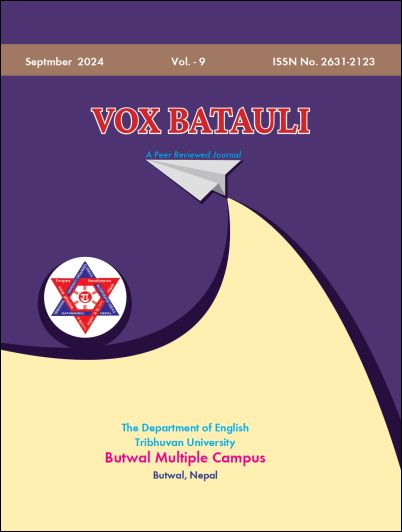Impact and Functions of Questioning in English Classes
DOI:
https://doi.org/10.3126/vb.v9i01.70393Keywords:
questioning, ELT, brainstorming, critical thinking, communication skillsAbstract
This study offers valuable insights into how English teachers in Nepali secondary schools are utilizing questioning techniques in the classroom, highlighting both the strengths and challenges of current practices. Adopting a qualitative research design for the study, eight secondary-level English teachers from four community schools in the Rupandehi district were selected as informants. The data were elicited through classroom observation and semi-structured interviews. First, classroom observation of eight teachers was carried out. Then, they were interviewed, and the data were processed. It was found that the teachers employed a range of questioning types, including higher-order, lower-order, and follow-up questions. These varied approaches aimed to foster interactive classroom environments and enhance students' communicative abilities. Critical thinking and brainstorming questions were also used, suggesting an effort to develop students' analytical skills. Most students responded positively to being questioned, indicating a preference for interactive engagement. However, a minority of students expressed fear of making mistakes, which could hinder their participation. Some teachers occasionally used an inappropriate tone, such as shouting or displaying anger, leading to irrelevant or unsuitable questions. This approach negatively impacted student motivation and participation. The findings highlight the importance of using a variety of questioning techniques to promote critical thinking and communication skills. Teachers should be mindful of their tone and approach when asking questions to avoid creating a fearful or uncomfortable classroom environment. There is a need for ongoing professional development to help teachers refine their questioning strategies, ensuring they are effectively fostering student engagement and critical thinking. This study contributes to a deeper understanding of how questioning practices can be optimized in English language teaching to improve student learning outcomes in Nepali classrooms.




